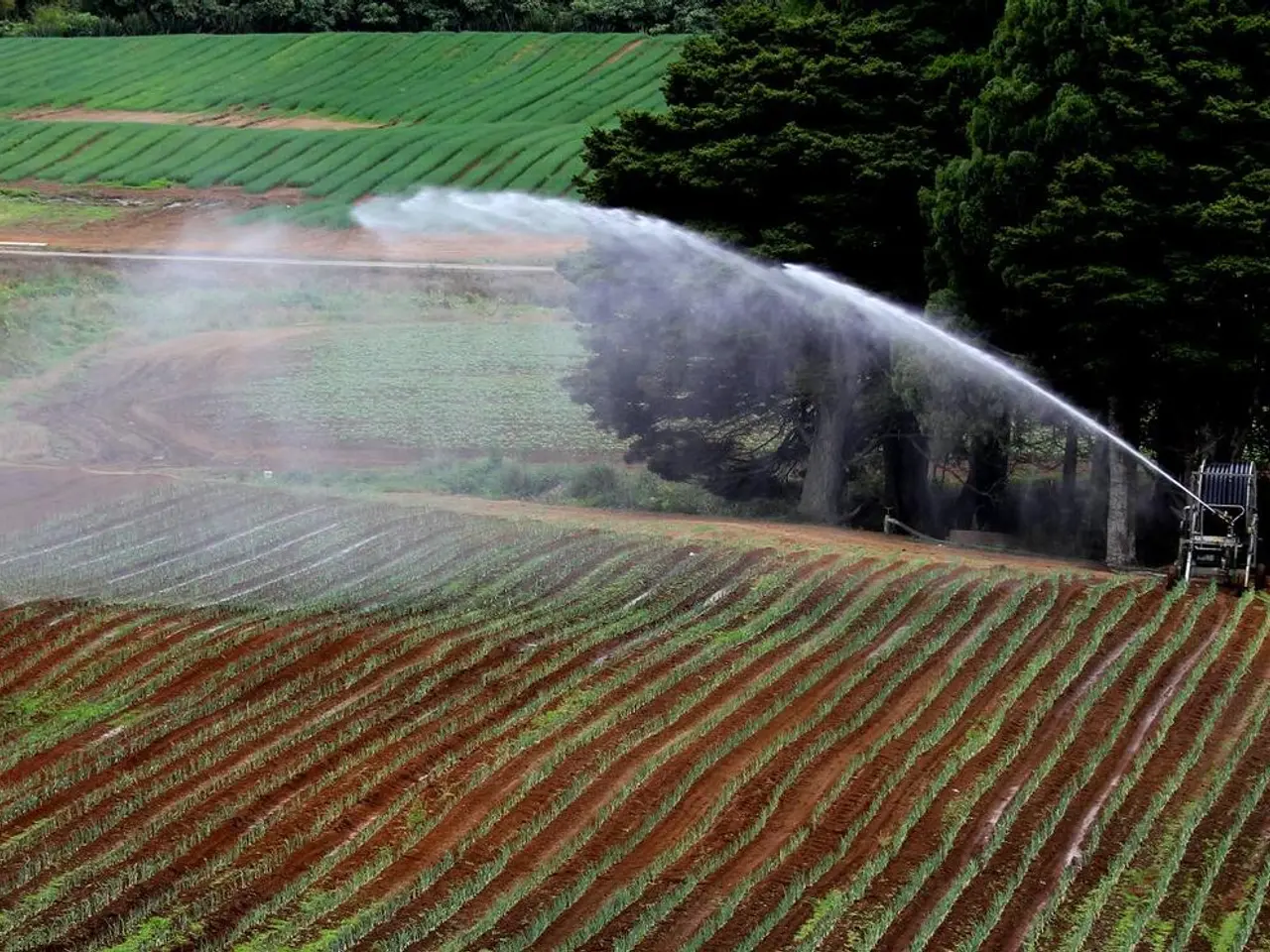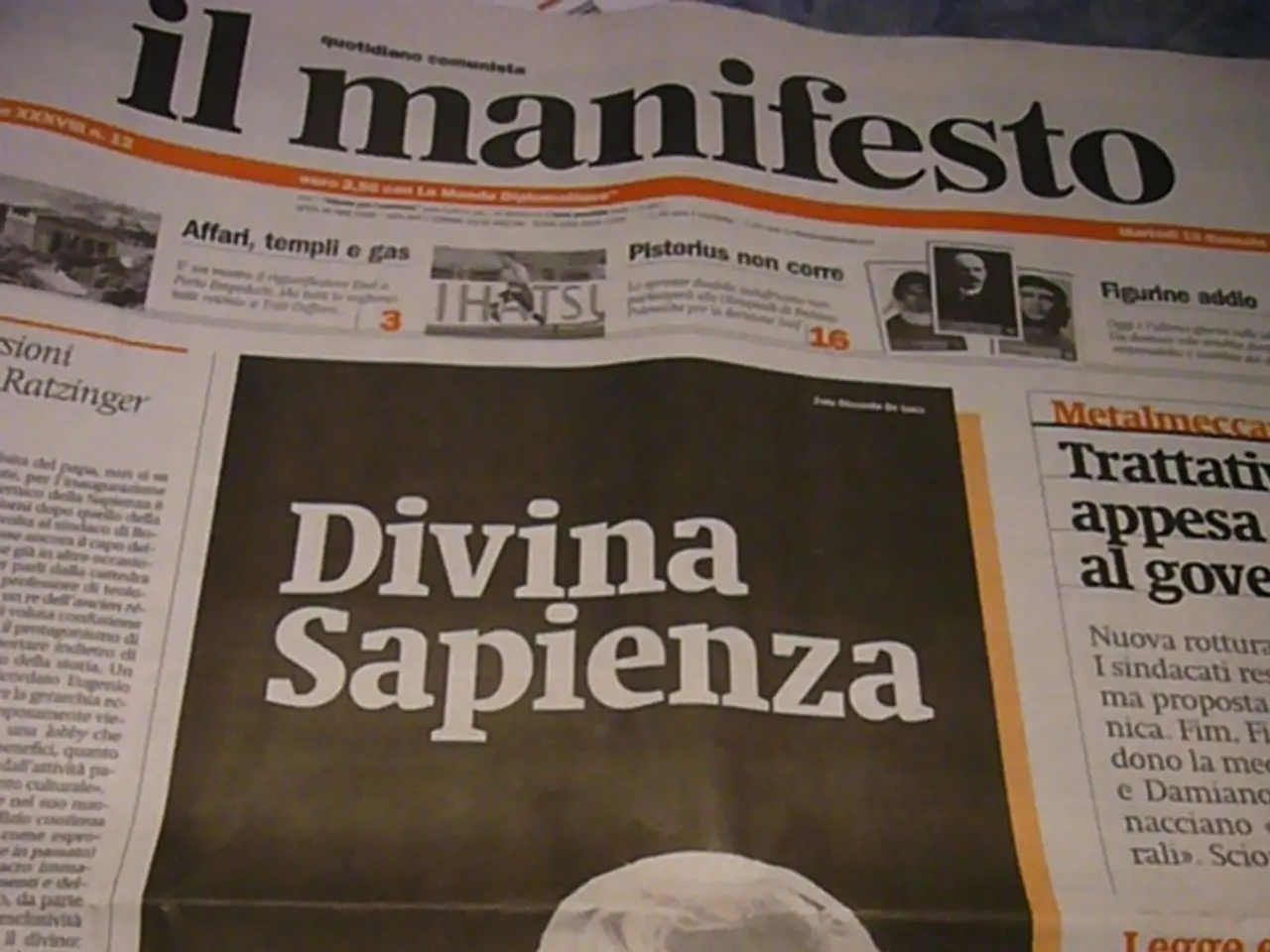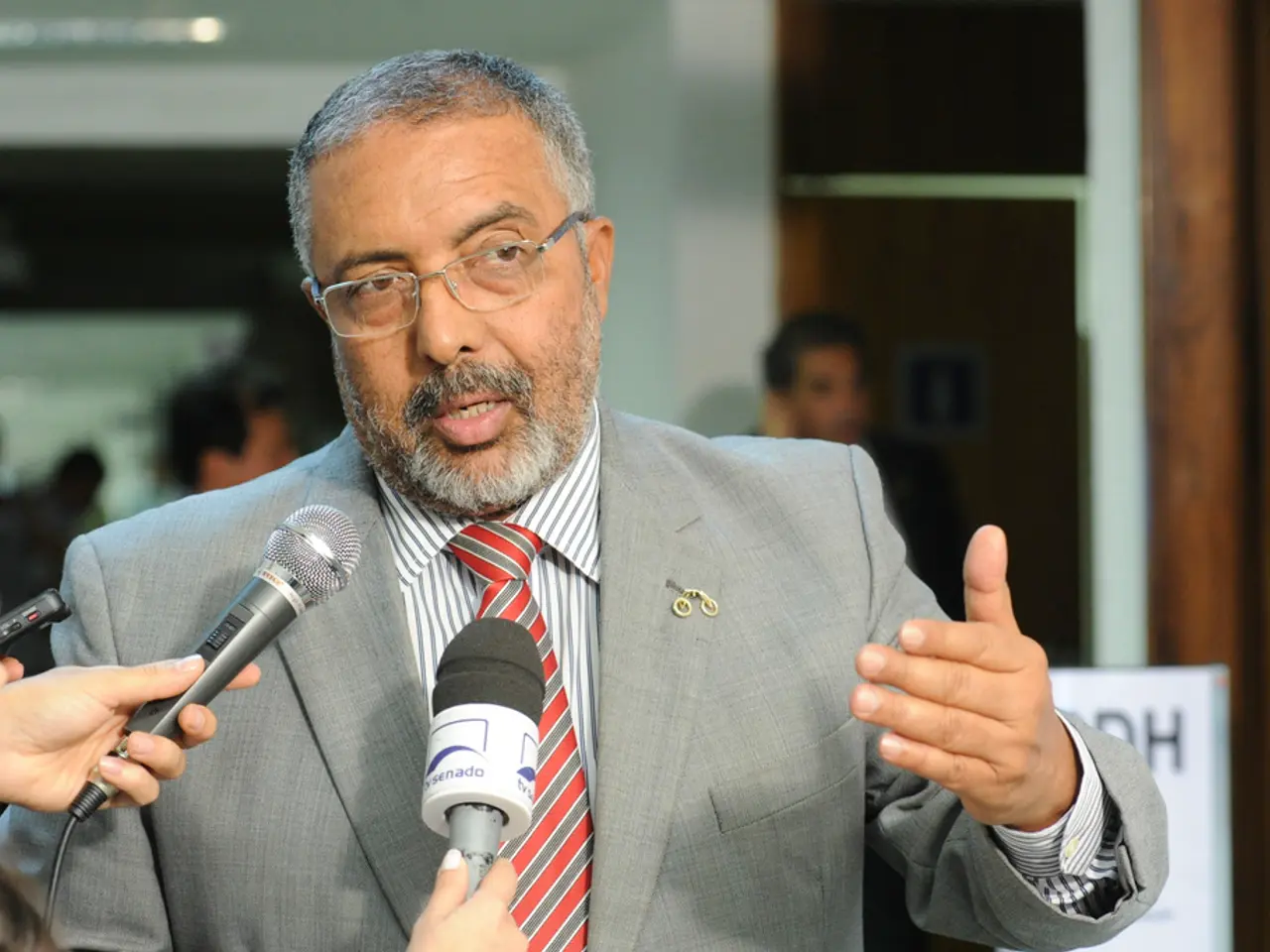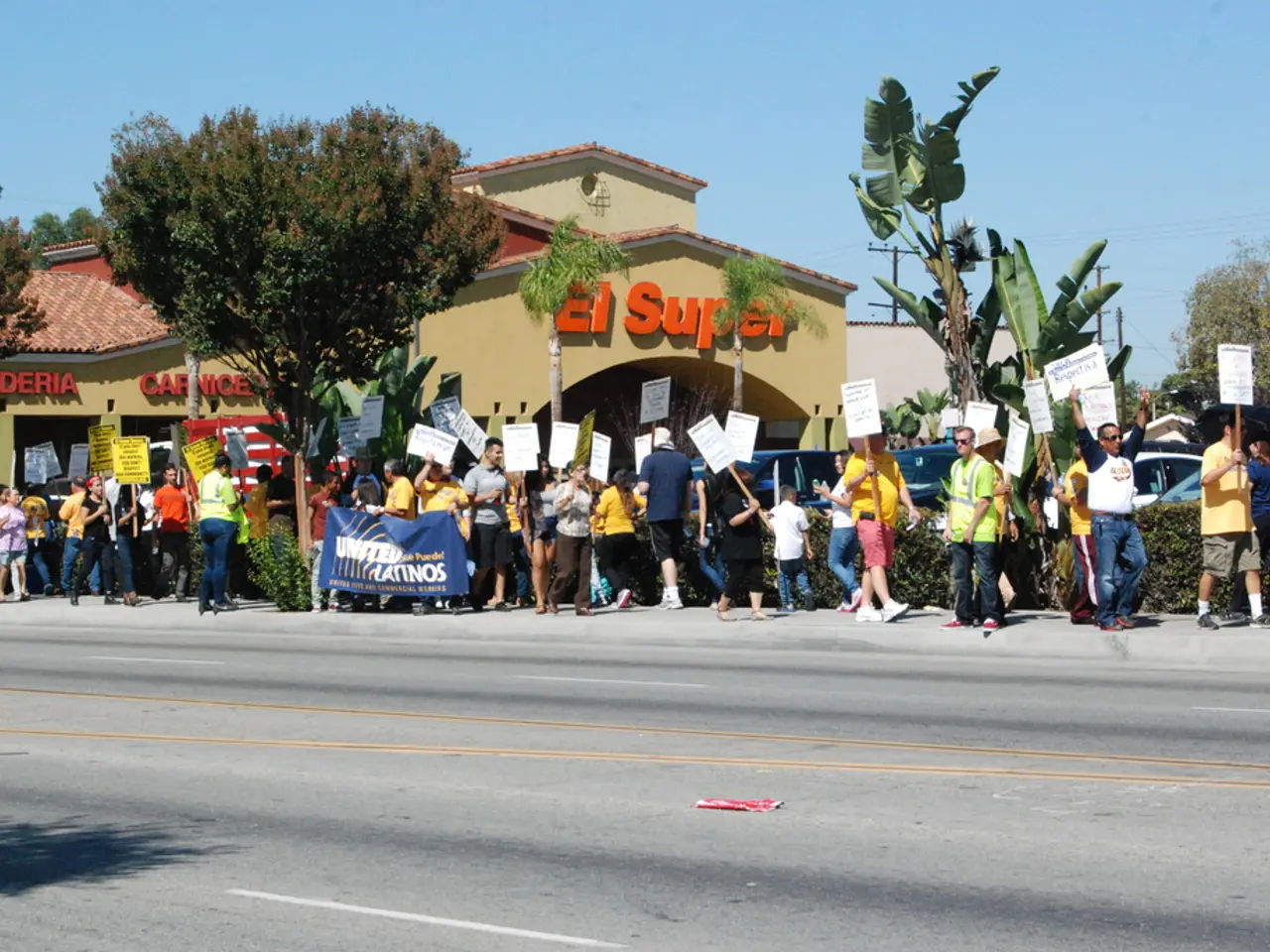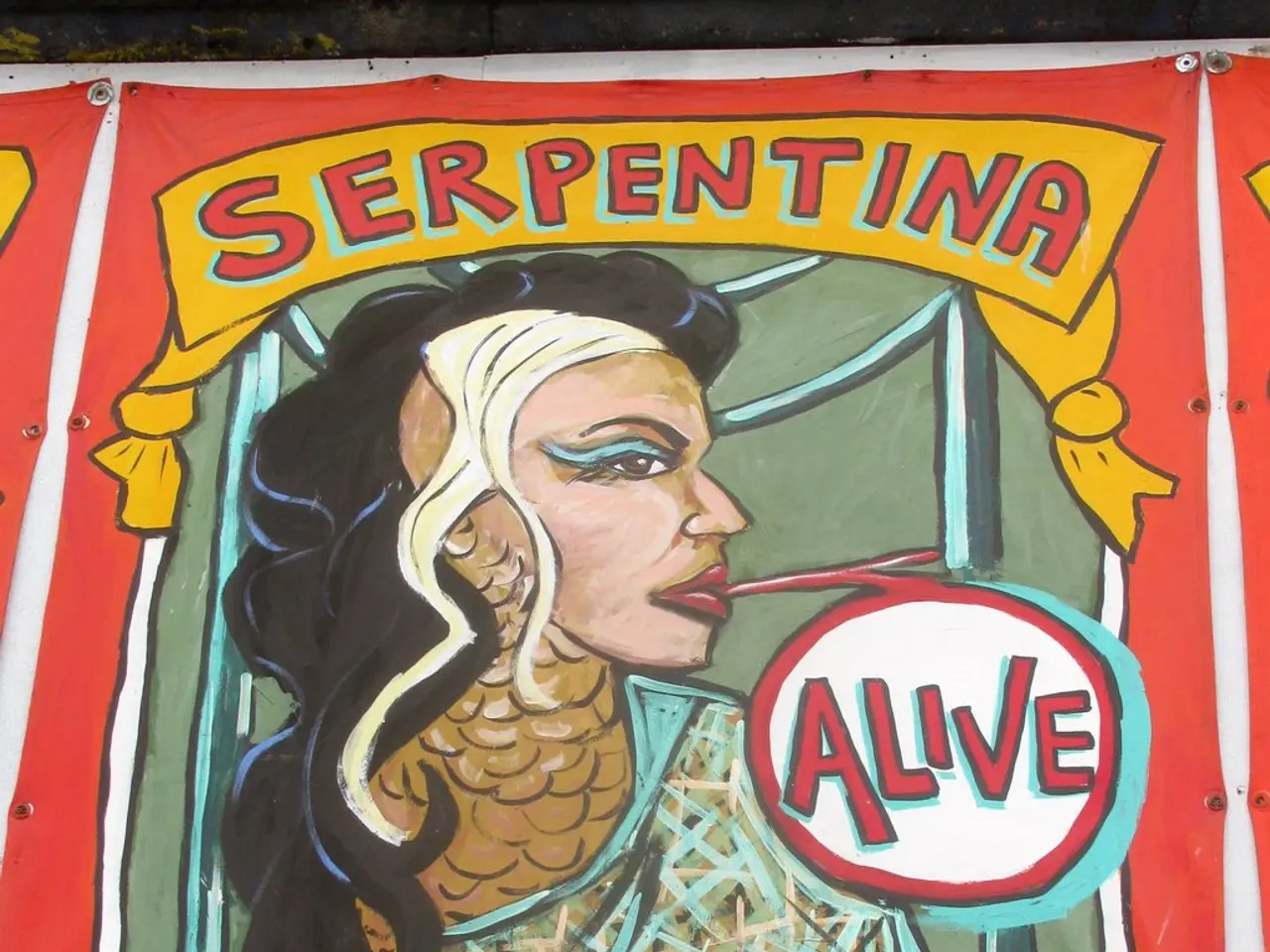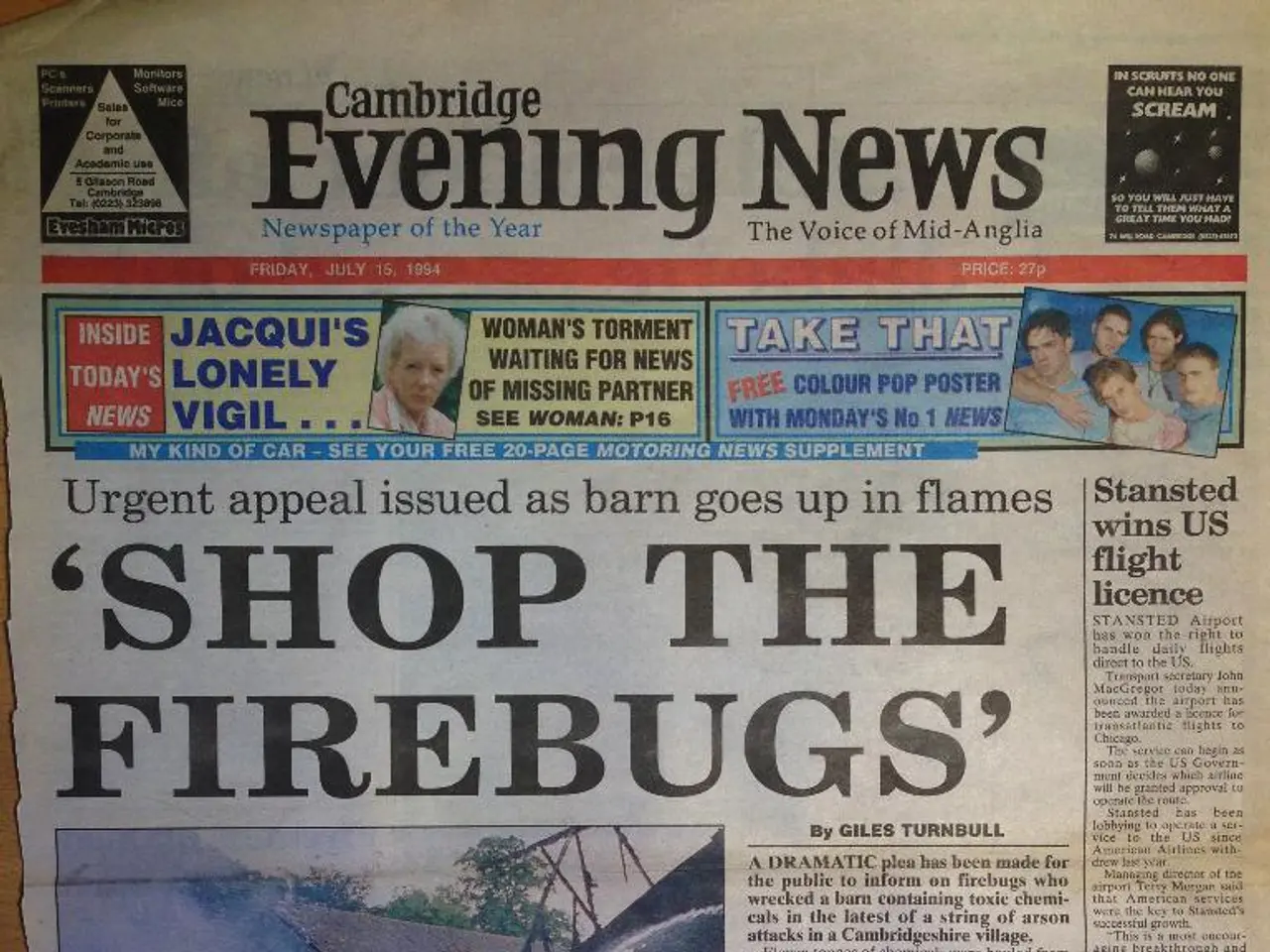Gathering of rural communities advocates: Exploration of autonomy for peoples against mining operations
In the heart of South America, the diverse indigenous communities and peasant populations of Peru continue to assert their rights and protect their territories against large-scale mining projects. One of the key organizations leading this movement is the Central Única de Rondas Campesinas (CUNARC), a prominent indigenous and peasant organisation that represents the traditional rural community self-defence groups known as "rondas campesinas."
Historically, rondas campesinas originated as community patrols aimed at protecting rural areas from crime, violence, and outside threats, particularly in Andean and Amazonian regions. Over time, CUNARC has evolved to play a broader social and political role, advocating for the rights, autonomy, and protection of indigenous and rural communities.
A key objective of CUNARC is defending ancestral lands and natural resources from external exploitation, especially opposing large-scale mining projects and extractive industries that threaten local ecosystems, water sources, and livelihoods. Their stance against mining is rooted in concerns about environmental degradation, social disruption, and lack of adequate consultation or benefit-sharing with indigenous populations. They often mobilize to resist mining operations they view as imposed and harmful.
The Tía María copper extraction project, led by Southern Copper Corporation, has faced strong opposition since its announcement in 2009 due to environmental and social concerns. Similarly, the Conga mining project, promoted by Yanacocha, remains suspended due to community resistance, despite being designed as an extension of the Yanacocha gold and copper mine. The Rio Blanco project, managed by the British company Monterrico Metals (now acquired by the Chinese company Zijin Mining Group), aims to exploit a copper and molybdenum reserve in a key paramo zone for local hydrological regulation, but it has sparked opposition due to potential ecosystem damage and water scarcity.
In response, CUNARC and the peasant rounds have declared null and void all mining concessions in their territories as they were not granted with prior, free, and informed consultation and consent. They have also prohibited any forms of offices, camps, infrastructure, machinery, equipment, and presence of mining company operators within their territorial scope.
Moreover, CUNARC aims to strengthen the institutionalization of peasant rounds, promoting their recognition and integration into the Peruvian legal and political system. They have asked indigenous, social, academic, political, and ecclesiastical organisations, as well as international cooperation, to solidarise with their peoples and support their cases. They have also requested international human rights organisations to supervise the State and urge it to respect their rights and comply with their decisions.
The indigenous groups in Peru have reaffirmed their identity and rights as original peoples. They have ratified their decisions regarding their own development model, based on agriculture, livestock, tourism, and others, in protection of Mother Earth, waters, and forests. This was evident at the National Peasant Round Encounter held in the province of Huancabamba, Piura department, on October 18 and 19, 2024, where indigenous self-determination against mining was the central theme.
In summary, CUNARC's history is tied to grassroots rural defence and community autonomy, and their objectives include the protection of indigenous territories and natural resources, with a strong opposition to mining activities that endanger their environment and way of life in Peru. As these communities continue to assert their rights, the future of mining in the country remains uncertain, with potential implications for the global mining industry.
- CUNARC, in its evolution, expanded its role to encompass not only rural defense but also social and political advocacy, focusing on the rights, autonomy, and protection of indigenous and rural communities.
- A significant objective for CUNARC involves defending ancestral lands and natural resources from external exploitation, particularly opposing large-scale mining projects and extractive industries that jeopardize local ecosystems, water sources, and livelihoods.
- The Tía María, Conga, and Rio Blanco mining projects have been met with strong resistance from CUNARC and peasant rounds due to environmental and social concerns. They view these projects as threats to their territories and ways of life.
- Apart from resisting mining activities, CUNARC aims to institutionalize peasant rounds, seeking recognition and integration into the Peruvian legal and political system. They are rallying support from various organizations, both national and international, to uphold their rights and decisions.
- The indigenous communities in Peru are asserting their identity as original peoples, basing their development model on agriculture, livestock, tourism, among others, while protecting Mother Earth, waters, and forests. This stance against mining was highlighted at the National Peasant Round Encounter in 2024, emphasizing their self-determination and right to protect their territories.
